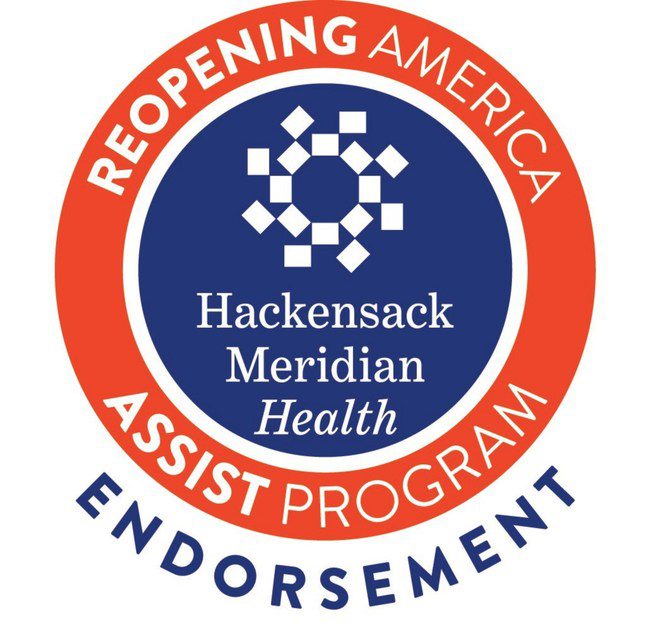October 19, 2020
Hackensack Meridian School of Medicine is pleased to announce a new program to assist schools in getting their academic year started more effectively, amid the challenges of COVID-19.
Hackensack Meridian Health in June of this year launched the Reopening America: Hackensack Meridian Health‘s Assist Program, which helps business owners and schools navigate the COVID-19 crisis and create a safe work environment for employees, customers, and students. The program is tailored to meet the needs of any organization by offering three tiers of solutions that can fit any type, size, and scale of business. These tiers include a hotline resource, weekly newsletter, on-site visits, and policy reviews and endorsement, among other benefits.
Hackensack Meridian Health and the Hackensack Meridian School of Medicine understand the many challenges that school districts are facing amidst the COVID-19 pandemic. This is why HMH has added on a new component to the “Reopening America: Hackensack Meridian Health’s Assist Program” called COVID SOS (Support Our Schools), an initiative developed by the Hackensack Meridian School of Medicine, as part of their Human Dimension Course Curriculum.
The new COVID SOS (Support Our Schools) initiative aims to provide expertise about opening, and opening safely, to select school districts in underserved communities that had previously partnered with the Hackensack Meridian School of Medicine’s innovative Human Dimension program.
“The Human Dimension program allows our medical students to provide benefits to the individuals, families, and communities with whom they are partnering,” said Bonita Stanton, founding dean of the Hackensack Meridian School of Medicine. “Even during a pandemic, learning must go on. By helping school districts get their classes up and running, our medical students are also learning valuable lessons themselves.”
“Our goal has always been to partner with communities and provide help wherever it is needed. This is a vital way we can help the most vulnerable in these uncertain times,” said Carmela Rocchetti, M.D., director of the Human Dimension. “Re-starting local education effectively and safely in these communities is crucial to recovery efforts.”
Each of the schools will be paired with a Hackensack Meridian School of Medicine Support Our Schools Task Force which will consist of eight medical students supervised by one of the school’s faculty physicians. Each Task Force will be trained in the latest in COVID-19 research and developments. The members of each task force will meet with school leadership approximately once a month. In addition to a personalized task force, school districts will have access to the Hackensack Meridian School of Medicine Faculty COVID Advisory Board which will host weekly Q & A sessions in order to provide real time support, as well as weekly scientific updates, and a dedicated phone line to maintain contact and updates.
The services provided by the COVID SOS experts include:
– Guidance regarding implementing COVID-19 guidelines
– Development and delivery of training materials for school faculty and/or staff
– Development and delivery of parent education series
– Development of materials specific to COVID-19, such as videos, visual aids, school website material, etc.
The Hackensack Meridian School of Medicine’s program focuses on providing these reopening services to communities with whom they are already engaged through the Human Dimension program.
The Human Dimension program is a three-year course focused on teaching future doctors the importance of the “social determinants of health” – including housing, food access and other standard-of-life factors. Pairs of medical students are matched with families and a community. The students come to know these individuals, families and communities very well—and in turn, the families and communities have become connected to the school. So far, nearly 150 families and 80 community partners have been touched by the program, in communities including Clifton, Nutley, Passaic, Paterson, Hackensack, Garfield, Bloomfield, West New York, Union City and groups spanning the State of New Jersey.
The Human Dimension also links to classroom-based activities and small group mentorship with a faculty mentor, providing students with the critical knowledge, skills, and supervision to enrich the real-world learning afforded to them through the Human Dimension experience.
Hackensack Meridian School of Medicine won the prestigious NOVA Award from the American Hospital Association this past summer for the community contributions it made through the Human Dimension program – distinguishing it as just one of a handful of institutions across the country.
